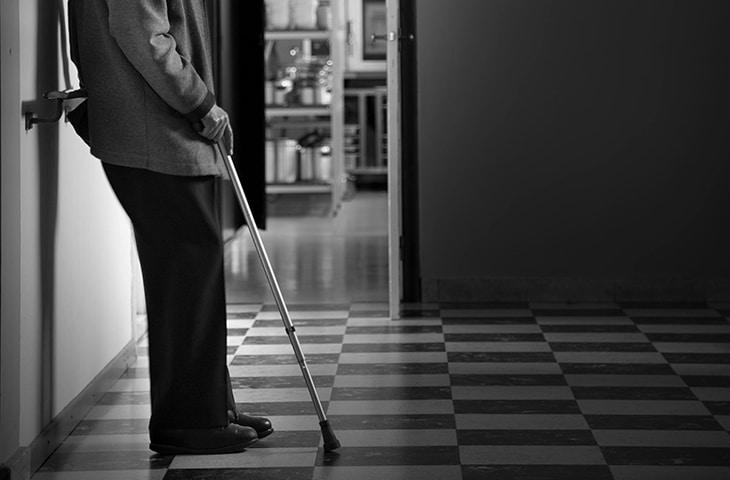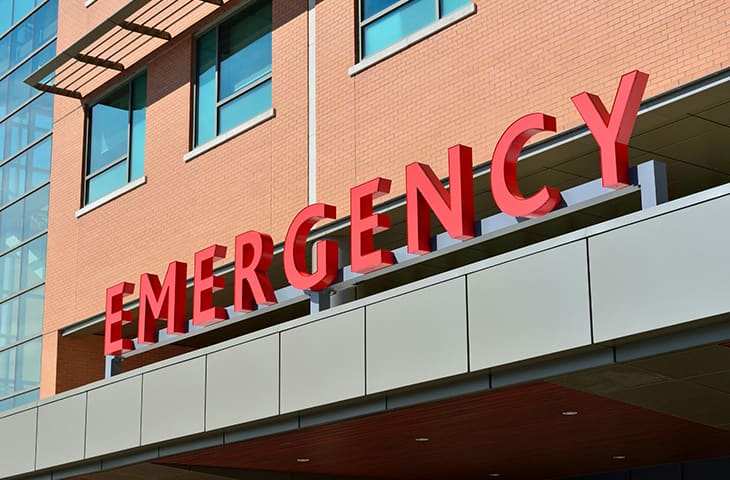Falls May Increase Dementia Risk—here’s How To Stay Safe And Prevent Them

Think back to the last time you heard someone mention a fall—whether it was a friend who tripped on the stairs or a family member who slipped on a wet floor. Falls are often seen as minor mishaps, but new research reveals they can carry serious, long-term consequences, particularly for older adults.
A recent study published in JAMA Network Open suggests that older adults who suffer traumatic injuries from falls may be more vulnerable to developing dementia, with a 20 percent higher likelihood of receiving a diagnosis of Alzheimer’s disease or another related dementia later in life.
The findings highlight the need for increased attention to fall prevention, particularly among older adults. We spoke with Meredith Bock, MD, board-certified neurologist and Chief Medical Officer at Remo Health to learn more. She helps explain the relationship between falls and cognitive health and how older adults can reduce their risk.
What the study found: How falls are linked to dementia
PixelsEffect
The retrospective cohort study, conducted by researchers at Brigham and Women’s Hospital in Massachusetts, analyzed data from over two million older adults who had experienced a traumatic injury due to a fall. The results found more than 10 percent of these individuals received a dementia diagnosis within a year following their injury.
The average age of study subjects who fell was 78, with higher incidences reported among women. According to the study, older adults over age 65 who experience a traumatic injury after a fall are at an increased risk of cognitive decline. The researchers highlighted that while some types of dementia, like Alzheimer’s, result from progressive cell death in the brain, head injuries from falls can also cause direct damage to brain cells, potentially increasing dementia risk.
While the correlation between falls and dementia is concerning, it’s crucial to understand the nuances involved. “The relationship between falls and risk of dementia is complex,” says Dr. Bock. Below, she cites two factors that may contribute.
First, falls signal an early marker of neurodegenerative processes that ultimately lead to a dementia diagnosis. “We know that neurodegeneration occurs in the brain for many years prior to a diagnosis of dementia,” says Dr. Bock. She defines this as the “prodromal” period, where people may experience changes in mood, cognition and sensory processing.
“Falls happen more in this early stage where there are already changes in the brain that are already affecting behavior and balance,” she explains. “In other words, the increased falls are a sign that dementia is already starting.”
On the other hand, Dr. Bock acknowledges that repeated falls may be an independent risk factor for dementia. “It is actually causative rather than simply associated,” she says. “In this case, repeated traumatic injury to the brain can increase [the] risk of dementia. [A] traumatic brain injury (TBI) is considered a modifiable risk factor for dementia because prior research has established that head injury increases the risk of dementia later in life.”
The risks of falling as we age
LightFieldStudios
According to the Centers for Disease Control and Prevention (CDC), falls are a leading cause of injury-related death among older adults, with many experiencing fractures, head injuries and significant loss of independence as a result.
The study findings serve as a call to action for older adults and their families. “Proactive fall prevention is a good idea in any case, for the prevention of cognitive issues and overall health,” says Dr. Bock. “Increasing falls or near falls is a good reason to undergo a cognitive screening.”
However, Dr. Bock reminds us to recognize the limitations of this study. “In studies like this, it is always difficult to differentiate between association and causation. Are the falls an early marker of dementia or an independent risk factor? As the authors conclude, the falls may be more of an early marker than a cause of dementia.”
New Alzheimer’s Test Shows 90% Accuracy in Diagnosing Early-Stage Dementia: Here’s When to Get It
Fall prevention tips for older adults
FG Trade
Minimizing fall risks is crucial for older adults. Below, Dr. Bock shares some practical tips to help you stay steady on your feet::
-
Improve home safety
“Remove or fix items like loose rugs, cords and damaged flooring. Consider a home safety consultation by professionals such as occupational therapists, physical therapists or Certified Aging-in-Place Specialists (CAPS),” says Dr. Bock.
-
Address lightheadedness
“If you feel dizzy, especially when standing, talk to your doctor,” says Dr. Bock. “This can indicate issues like low blood pressure and may require medication adjustments. Simple solutions like compression socks and staying hydrated can improve circulation and reduce the risk of falls.”
-
Check your vision and hearing
“Keep your eyewear prescription up-to-date and consider hearing aids if needed. Regular assessments are crucial,” says Dr. Bock.
-
Stay active
“Boost your balance, muscle strength and coordination through exercise,” says Dr. Bock. “A physical therapist can help design a safe exercise plan.”
If you have previously suffered from falls, Dr. Bock suggests discussing with your doctor whether an assistive device like a cane or walker can help.
More on brain health:
Experts Share 6 Easy Brain-Boosting, Memory-Enhancing Tips You’ll Want to Try!
Experts Share the 8 Best Brain Foods to Boost Focus, Prevent Memory Loss and More
What Ozempic Does to Your Brain: It May Reduce the Risk of Dementia 48 percent


